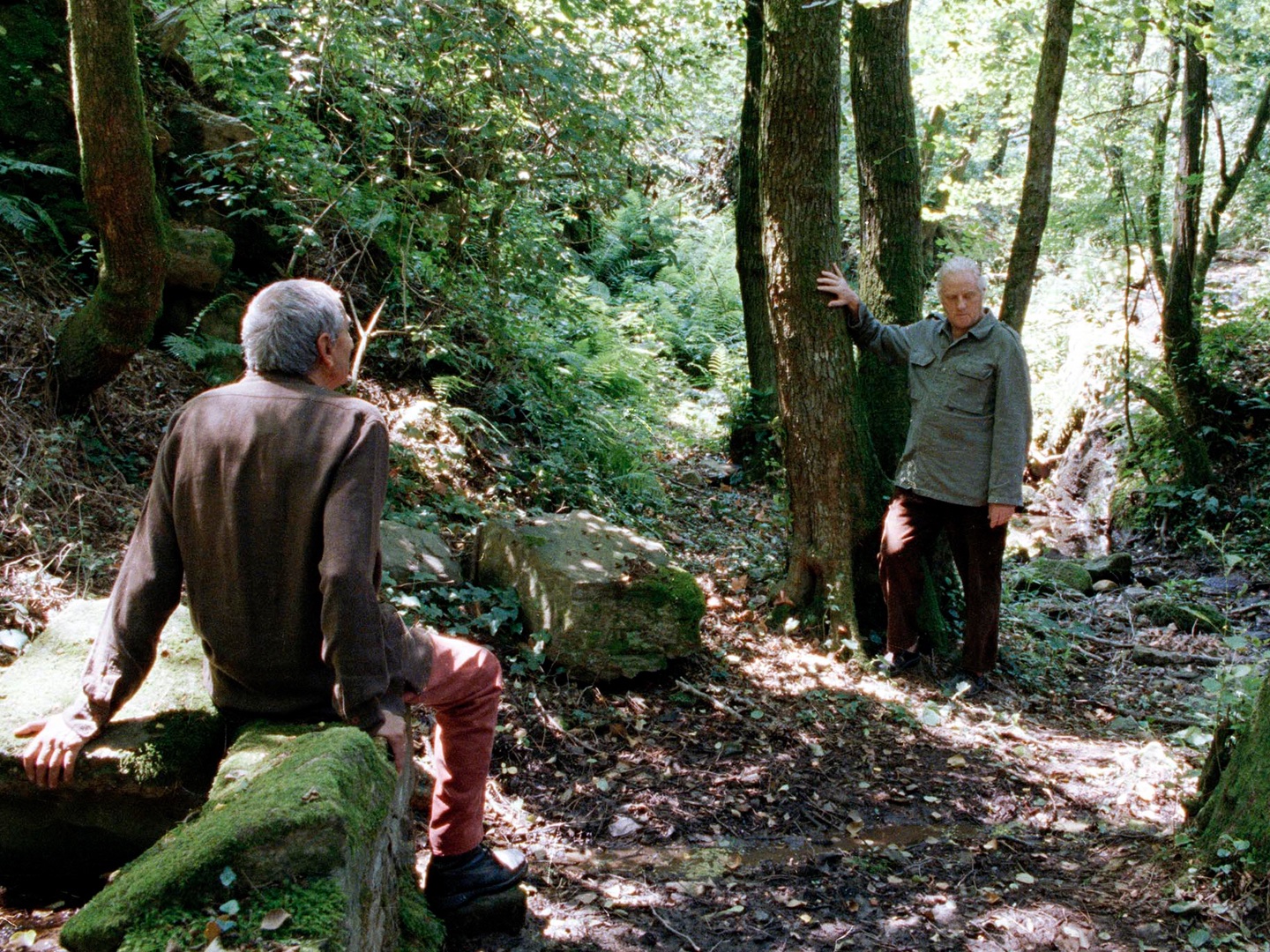
For Le genou d’Artemide, Jean-Marie Straub once again chose a dialogue by Cesare Pavese. And not just any dialogue, but one that tears open a painful, mystical abyss between love and the one left behind. The film is one single exhilaration and one single rush, a spell and dispersion into nature. It rises from a dark screen and chant to disappear in the woods with the whisper of the wind. It has little to do with what is generally called “cinema”. It has one foot in the world beyond. (Viennale)
EN
“Straub’s first film directed by himself after Danièle Huillet passed away is really nothing but the sound of wind in the air and the look of moving light through trees. There is a dialogue too, of course, again adapted from Cesare Pavese like many of Straub/Huillet’s previous films [‘La Belva/The Lady of Beasts’ from his 1947 Dialogues with Leucò] and fittingly it is about the vast distance between a mortal and the woman he loves, a goddess of dreams who encompasses all that is wild and wonderful, beastly and beautiful in the world.
No previous knowledge is required to understand the tenor and wisdom, the passion of this handful of simple, but undeniably magnificent visions of light and sound. When Straub holds the last shot of a man in the film, the dialogue complete, and the sun passes and moves the grove into shadow, it is evident that in the end light and shadow reign over the most beautiful of cinema, and can say things about loved ones, life, and death that words can never reach.”
Daniel Kasman1
- 1Daniel Kasman, “Cannes Film Festival, 2008: Le Genou d'Artemide (Straub, Italy) & Itinéraire de Jean Bricard (Straub/Huillet, France),” MUBI Notebook, 22 May 2008.

